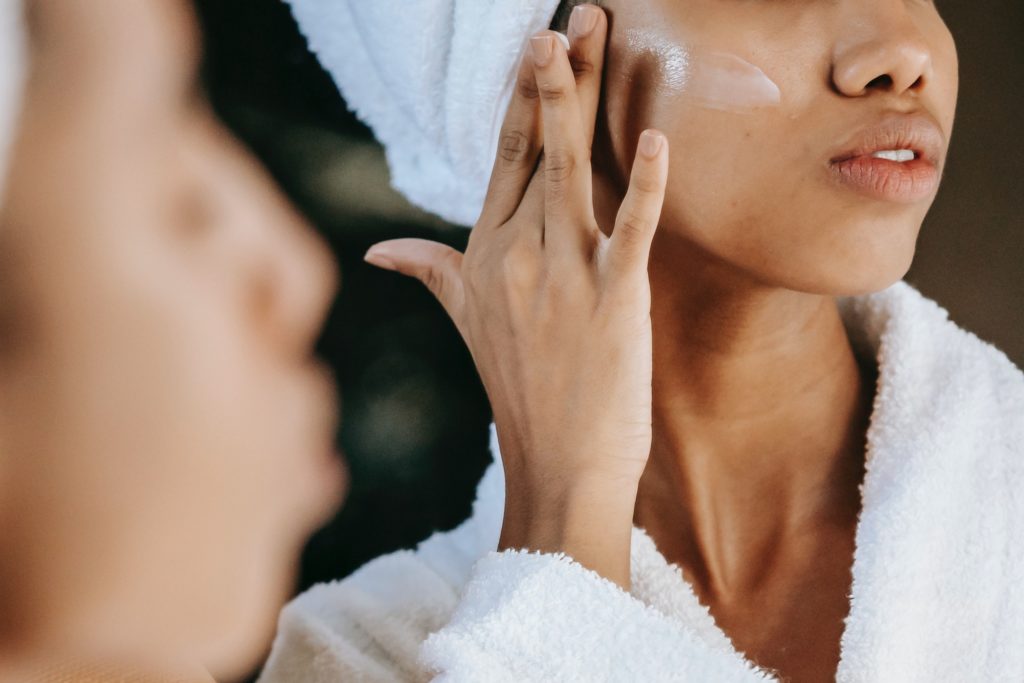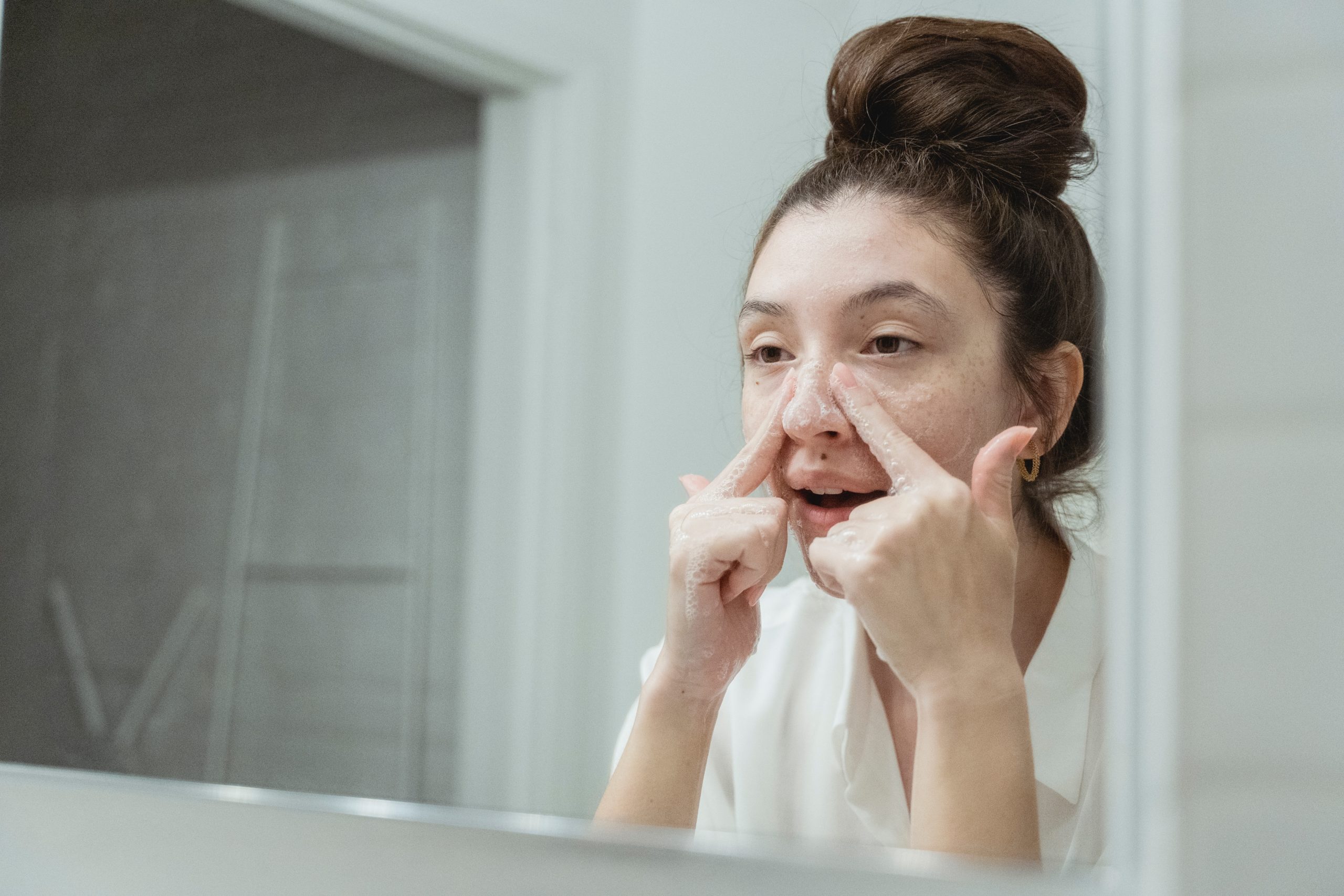As the cold winter weather sets in, many of us find ourselves reaching for extra layers of clothing to protect ourselves from the chill. However, what we may not realize is that the harsh winter weather can also take a toll on our skin, leaving it dry, flaky, and even irritated. To combat these issues, it’s important to adjust our skincare routine for the winter months.
In this article, we’ll discuss the effects of winter on your skin, how to adjust your skincare routine accordingly, and the ingredients to look for in winter skincare products.
The Effects of Winter on Your Skin
During the winter season, our skin experiences several environmental factors that can adversely affect its health and appearance. In this context, the following are the major environmental factors that affect the skin in winter:
A. Overview of the Environmental Factors That Affect Skin in Winter
- Cold temperatures: Cold temperatures are one of the primary environmental factors that can damage the skin during winter. The cold air can cause a decrease in blood flow to the skin, leading to dryness, cracking, and flakiness.
- Indoor heating: Indoor heating systems can cause the air to become dry and reduce the humidity levels, leading to dryness, itching, and irritation of the skin.
- Reduced humidity: Reduced humidity levels during winter can cause the skin to become dehydrated, resulting in a lack of moisture and increased skin sensitivity.
- Winter wind: The winter wind can be harsh on the skin, leading to chapping, redness, and dryness.
B. The Impact of Colder Temperatures on Skin
When the temperature drops, the skin’s blood vessels narrow, reducing blood flow and oxygen to the skin. This can cause the skin to become dry, itchy, and irritated. Additionally, exposure to extreme cold can cause the skin to become inflamed, leading to conditions such as frostbite and chilblains.
C. The Impact of Indoor Heating on Skin
Indoor heating can be particularly problematic for the skin, as it can cause the air to become dry, which can, in turn, dehydrate the skin. This can lead to the skin becoming dry, itchy, and flaky. Additionally, exposure to indoor heating for long periods can cause the skin to become inflamed and irritated.
D. The Impact of Reduced Humidity on Skin
Winter air is typically much drier than summer air, as the colder temperatures cannot hold as much moisture. This lack of humidity can be particularly damaging to the skin, as it can cause the skin to become dry and dehydrated.
Additionally, reduced humidity can cause the skin’s natural moisture barrier to become compromised, leaving the skin more susceptible to environmental damage.
E. The Impact of Winter Wind On Skin
Winter winds can be particularly harsh on the skin, as they can strip away its natural oils and moisture. This can leave the skin dry, chapped, and irritated.
Additionally, exposure to winter winds can cause the skin to become inflamed and damaged, making it more susceptible to environmental stressors.
Adjusting Your Skincare Routine for Winter

Winter weather can have a significant impact on your skin, and it’s important to adjust your skincare routine accordingly to keep it healthy and hydrated. Here are some tips for adjusting your skincare routine for winter:
A. Cleansing and Exfoliating
During the winter months, your skin tends to be drier due to the lack of humidity in the air. Therefore, switching to a gentler cleanser that won’t strip your skin of its natural oils is essential. Look for cleansers labeled as “hydrating” or “moisturizing.”
Exfoliating regularly is important to remove dead skin cells and reveal brighter, smoother skin. However, in winter, you should reduce the frequency of exfoliation as your skin is already more prone to dryness. Limit it to once or twice a week and use a gentle exfoliator like exfoliating scrubs.
B. Moisturizing
Moisturizing is crucial during winter, as it helps prevent dryness and flakiness. Choose a moisturizer that is richer and heavier than your summer moisturizer. Look for products with ingredients such as hyaluronic acid, glycerin, and ceramides that help to hydrate and repair the skin’s barrier.
Some recommended moisturizers for winter include CeraVe Moisturizing Cream, La Roche-Posay Lipikar Balm AP+, and Kiehl’s Ultra Facial Cream.
C. Sun Protection
It’s a common misconception that sunscreen is only necessary for the summer. However, the sun’s UV rays can still damage your skin in winter, especially when it reflects off the snow. Therefore, it’s important to wear sunscreen even on cloudy days.
Look for a broad-spectrum sunscreen with an SPF of at least 30. Some recommended sunscreens for winter include Neutrogena Ultra Sheer Dry-Touch Sunscreen, EltaMD UV Clear Facial Sunscreen, and Supergoop! Unseen Sunscreen.
D. Other Skincare Tips
1. Using a Humidifier
The dry winter air can cause your skin to lose moisture. A humidifier can help add moisture back into the air and keep your skin hydrated.
2. Staying Hydrated
Drinking enough water is crucial for maintaining healthy skin. Aim for at least eight glasses of water a day.
3. Using Lip Balm
The skin on your lips is thinner and more delicate than the skin on the rest of your face. It’s important to use a lip balm to keep them hydrated and protected from the harsh winter weather.
Look for a lip balm with beeswax, shea butter, and vitamin E ingredients. Some recommended lip balms for winter include Aquaphor Healing Ointment and Burt’s Bees Beeswax Lip Balm.
Ingredients to Look For in Winter Skincare Products
Winter weather can be harsh on your skin, leaving it dry, dull, and irritated. To combat these effects, use the right skincare products with specific ingredients that can help keep your skin moisturized, hydrated, and healthy. Here are four key ingredients to look for in winter skincare products:
A. Emollients
Emollients are ingredients that help soften and soothe the skin by filling in the gaps between skin cells. They create a protective barrier that hair in moisture, preventing it from escaping the skin. Examples of emollients include shea butter, jojoba oil, and glycerin.
B. Humectants
Humectants are ingredients that attract and retain moisture from the environment, helping to hydrate the skin. They bind water molecules to the skin’s surface, keeping it soft and supple. Examples of humectants include hyaluronic acid, glycerin, and urea.
C. Occlusives
Occlusives are ingredients that create a barrier on the skin’s surface, preventing moisture from escaping. They help keep the skin hydrated by locking in moisture and protecting it from harsh weather conditions. Examples of occlusives include petroleum jelly, lanolin, and beeswax.
D. Anti-inflammatory Ingredients
Winter weather can cause inflammation and irritation to the skin, resulting in redness, dryness, and flakiness. Anti-inflammatory ingredients help soothe and calm the skin by reducing inflammation and redness. Anti-inflammatory ingredients include aloe vera, chamomile, and green tea extract.
Conclusion
Changing your skincare routine for winter is crucial in keeping your skin healthy and glowing during the colder months. The combination of harsh winds, reduced humidity, and indoor heating can wreak havoc on your skin, leading to dryness, flakiness, and irritation.
By adjusting your cleansing, moisturizing, and sun protection routine and incorporating ingredients like emollients and humectants, you can effectively combat the effects of winter on your skin. Remember also to stay hydrated, use a humidifier, and protect your lips with lip balm.
Frequently Asked Questions (FAQs) on Changing Your Skincare Routine for Winter
1. Why do I need to change my skincare routine for winter?
The colder temperatures, reduced humidity, and indoor heating during winter can lead to dryness, irritation, and other skin issues. Adjusting your skincare routine can help you maintain healthy skin during this time.
2. What should I change in my skincare routine for winter?
You may need to switch to a gentler cleanser, increase your moisturizer use, and add a sunscreen with UVA and UVB protection. You may also need to adjust your exfoliation frequency, use a humidifier, and drink plenty of water to stay hydrated.
3. Should I use the same moisturizer in winter as in summer?
No, you may need to switch to a richer moisturizer that provides more hydration and protection for your skin during winter. Look for ingredients like hyaluronic acid, ceramides, and shea butter in your winter moisturizer.
4. Can I still get sun damage in winter?
Yes, even though it’s cold outside, the sun can still cause damage to your skin in winter. You should still use broad-spectrum sunscreen with at least SPF 30, even on cloudy days.
5. Can I use the same exfoliator in winter as in summer?
You may need to adjust your exfoliation frequency and choose a gentler exfoliator during winter to avoid over-drying your skin. Look for chemical exfoliants like alpha-hydroxy acids (AHAs) or beta-hydroxy acids (BHAs) that are less harsh than physical exfoliants like scrubs.
6. How often should I use a humidifier in winter?
Using a humidifier can help counteract the dry air caused by indoor heating. You should aim to use your humidifier every day or as often as needed to maintain a comfortable level of humidity in your home.
7. Do I still need to drink plenty of water in winter?
Yes, staying hydrated is essential for maintaining healthy skin during winter. You may need to drink even more water than usual, as the dry air can lead to increased water loss from your skin.



